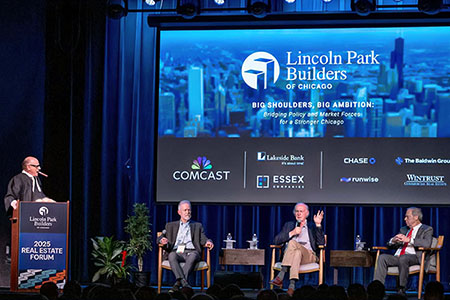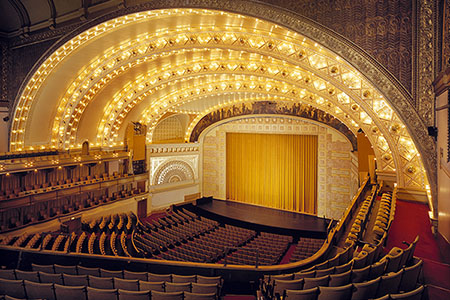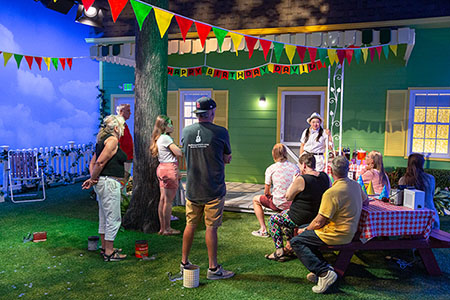
The attack on private property rights could cost you money and loss of control over your property.
Oct. 14, 2024 – Chicago’s small, “Ma and Pa” apartment building owners in six rapidly appreciating Northwest and West Side neighborhoods should beware. Mayor Brandon Johnson – an avowed Democratic Socialist – and his henchmen and henchwomen in the City Council have launched an attack on your private property rights. And that could cost you money and loss of control over your real property. The Northwest Side Housing Preservation Ordinance – which allegedly is designed to protect housing in the rapidly gentrifying neighborhoods of Avondale, Hermosa, Humboldt Park, Logan Square, West Town, and a large section of Pilsen – was overwhelmingly approved on September 18 and went into effect on October 9, granting rare powers to renters. Only three courageous aldermen opposed the ordinance – Brian Hopkins (2nd Ward), Bill Conway (34th Ward), and Bennett Lawson (44th Ward). The legislation seeks to protect renters in two-flats, three-flats, four-flats, and apartment buildings with five units or more from being priced out by higher rents and/or displaced by gentrification by giving tenants a first right to buy the building. Veteran North Side Realtor Sara Benson, president of Benson Stanley Realty, explained that the ordinance especially will impact sales of buildings with five units or more because it gives tenants 120 days to exercise their first-right-of-refusal to buy.
Landlords and real estate managers say the ordinance was rushed through the City Council with virtually no input from apartment owners and the real estate industry. The ordinance purports to “preserve naturally occurring affordable housing” by requiring owners of rental apartments who wish to sell their buildings to give tenants a right-of-first-refusal. The sweeping ordinance covers a geographic area (above) spanning more than six square miles in the heart of Chicago’s Northwest and West sides and an undetermined number of miles within Pilsen. The ordinance was sponsored by seven aldermen – Daniel La Spata (1st Ward), Byron Sigcho-Lopez (25th Ward), Jessie Fuentes (26th Ward), Ruth Cruz (30th Ward), Felix Cardona, Jr. (31st Ward), Rossana Rodriguez-Sanchez (33rd Ward), and Carlos Ramirez-Rosa (35th Ward). Ordinance will challenge owners of small, family-owned buildings, says alderman The goals of the ordinance – preserving naturally occurring affordable housing in multifamily buildings and preventing displacement of longtime residents – are both laudable, Alderman Hopkins told The Home Front.
“Furthermore, the greatly lengthened runway now needed to sell a multifamily building in the pilot area, without a requirement of any tenant organization to show evidence of financing to purchase the building, is fundamentally not fair and is government overreach,” Hopkins concluded.
Mike Glasser, president of the Neighborhood Building Owners Alliance (NBOA), which represents 11 real estate organizations, noted that the restrictive ordinance also significantly increases the demolition surcharge on multifamily builds to $60,000 from $15,000, providing a disincentive for developers or property owners to replace an aging two-flat with a new single-family home.
The ordinance also encourages apartment renters who exercise their right-of-first-refusal to form tenant organizations and work together to place a 5 percent down payment and buy buildings. More significantly, the ordinance allows tenants to assign this right to third parties, and if the entity purchasing the rental property uses any public funds, they must adhere to a 30-year covenant keeping the rents at or below 60 percent of the Area Median Income (AMI). “Particularly appalling is the provision in the legislation allowing assignments of the tenant’s right-of-first-refusal,” noted Benson. “Allowing assignment opens the flood gates to all kinds of potentially unscrupulous and unethical practices.” This writer believes the private property grab by Democratic Socialists seems eerily similar to the plot of the 1965 film Doctor Zhivago (above). During the 1917 Russian Revolution, wealthy property owners were told their mansions were too big for one family. The properties were confiscated by the communist forces overthrowing the Czar and used to house the rising working class. Neighborhood groups fight anti-gentrification ordinance Veteran real estate investors believe that gentrification is a natural process that renews inner-city neighborhoods and helps build middle-class family wealth, while expanding the real estate tax base. Members of NBOA said the organization is developing both legislative and legal strategies to fight implementation of the Northwest Side Housing Preservation Ordinance. They represent and advocate for the following Chicagoland neighborhood building owners associations:
Time frames of the anti-gentrification ordinance
Time frame to close the sales transaction if tenants exercise right-of-first-refusal:
|

















